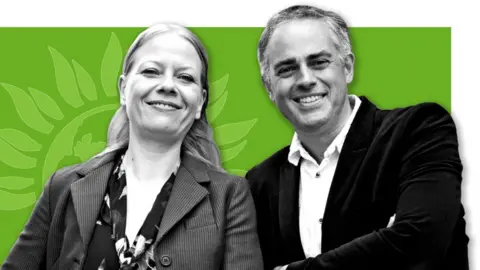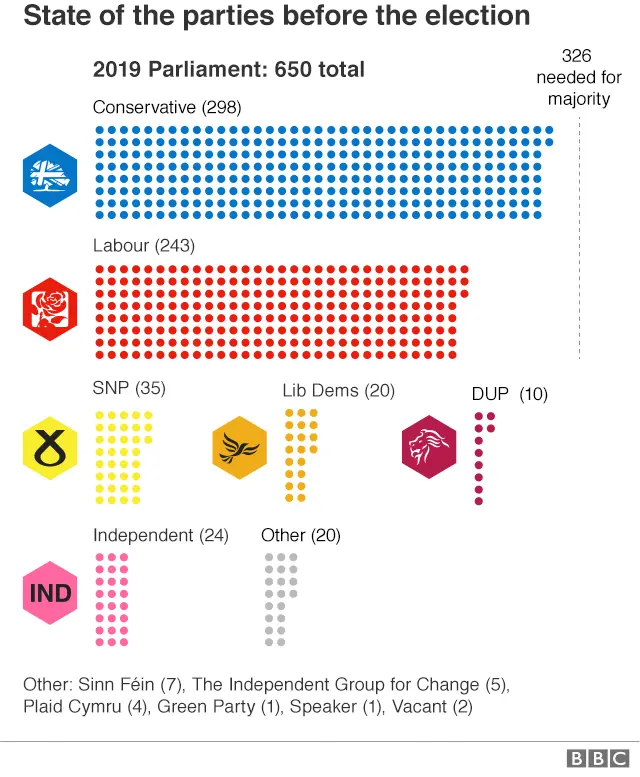General election 2019: A simple guide to the Green Party
 BBC
BBCThe Green Party of England and Wales primarily exists to champion environmental causes but is keen not to be seen as a single-issue campaign party and has policies in all areas.
There are separate Green parties in Scotland and in Northern Ireland.
Who is the leader?
For many years, the Greens did not have a leader, just "principal speakers", to distance themselves from the traditional Westminster power structures.
Now they have two leaders - Sian Berry and Jonathan Bartley.
Blues musician Mr Bartley has held the leadership role for longer - having also split duties with Caroline Lucas from 2016 to 2018. He worked on former Conservative Prime Minister John Major's leadership campaign in 1995 and has previously appeared on BBC Radio 4's Thought for the Day.
London Assembly member Ms Berry replaced Ms Lucas last year. She is also the party's candidate in the London mayoral elections next year - her third attempt at landing the role, having most recently finished third in 2016.
What does it need to do to win the election?
The Greens are not expected to be the outright winners in the forthcoming election - having taken 1.6% of the total vote last time round in 2017. They had one MP in the last Parliament, Caroline Lucas.
However, the party had its most successful European election earlier this year, when it increased its number of MEPs from three to seven.
The party is planning to enter candidates in 497 of the 650 constituencies.
Five key election pledges
The party published its manifesto called If Not Now, When? on 19 November. It sets out the polices the party aims to introduce, should it win the election.
Here are five policies that featured in it:
- Invest £100bn a year to reach net zero carbon emissions in the UK by 2030
- Pursue a "green new deal" including a structural transformation of the way the economy works
- Increase funding for the NHS by at least £6bn per year, until 2030
- Oppose Brexit and hold another referendum on membership and will campaign to Remain in that vote
- Abolish university tuition fees and write off existing student debt


Where does it stand on Brexit?
The Green Party supports having another referendum on EU membership, in which it says it will back Remain.
It has struck a deal with other pro-Remain parties - the Liberal Democrats and Plaid Cymru - not to compete against each other in dozens of seats.
The Greens hope this will help deliver the highest number of pro-Remain MPs to Parliament.
What else does it stand for?
The Greens describe themselves as a party of "social and environmental justice".
Climate change, workers' rights, animal rights and electoral reform are issues which often feature high on the party's agenda.
Green Party policy in a tweet
Allow X content?

How many members does it have?
According to the most recent figures, in July, the Green Party has 48,500 members.
What is the Green Party's history?
It began life in the mid-1970s as the Ecology Party, which had its roots in campaigns to protect the environment.
The Green Party came into being in 1985, however, it would take another 25 years before it was represented in the Commons, when Ms Lucas won the seat of Brighton Pavilion.
It has expanded its policy proposals beyond purely environmental issues over the years in an attempt to appeal to a broader spectrum of voters.
What about the other parties?
Correction 22 November 2019: An earlier version of this article described the 497 candidates the Green Party plans to enter in the election as "more than ever before". However, the party fielded more candidates in the 2015 general election. This statement has been removed.
